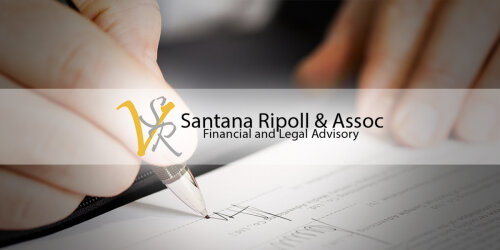Best Franchising Lawyers in Puerto Plata
Share your needs with us, get contacted by law firms.
Free. Takes 2 min.
List of the best lawyers in Puerto Plata, Dominican Republic
About Franchising Law in Puerto Plata, Dominican Republic
Franchising in Puerto Plata, Dominican Republic is an increasingly popular business model that allows individuals to own and operate a business using an established brand and operational framework. Franchising law encompasses the rules and regulations governing the relationship between the franchisor (the brand owner) and the franchisee (the individual operator). This includes the establishment, operation, and termination of franchise agreements. In Puerto Plata, the legal landscape is influenced by both national legislation and local practices, making it essential for potential franchisees and franchisors to understand the specific requirements and protections in place.
Why You May Need a Lawyer
Navigating the complexities of franchising law can be challenging, and there are several reasons you might require legal assistance:
- Drafting and Reviewing Contracts: To ensure that agreements are clear, fair, and comply with local laws.
- Franchise Disputes: In case of conflicts between the franchisor and franchisee regarding contract terms, performance, or violations.
- Regulatory Compliance: To help understand and adhere to Dominican Republic’s specific franchising regulations.
- Intellectual Property Protection: To safeguard brand and operational frameworks.
- Exit Strategies: For scenarios involving termination or transfer of the franchise agreement.
Local Laws Overview
The local laws in Puerto Plata regarding franchising are primarily governed by general commercial laws of the Dominican Republic. Key aspects include:
- Registration Requirements: Franchisors are often required to register their franchise operations with local authorities.
- Disclosure Obligations: Franchisors must provide prospective franchisees with detailed information about the franchise system, financial status, and any potential risks.
- Consumer Protection Laws: These laws aim to protect the rights of franchisees as consumers in business transactions.
- Contractual Freedom: While there is room for negotiation in franchise agreements, there are specific clauses that must conform to local standards.
Frequently Asked Questions
What is a franchise?
A franchise is a business model where an individual (franchisee) is granted the rights to operate a business using the name, trademark, systems, and products of an established brand (franchisor).
What are the main laws governing franchising in Puerto Plata?
The primary laws include the Commercial Code and related consumer protection regulations, along with specific registration and disclosure requirements for franchises.
Do I need a local lawyer to start a franchise in Puerto Plata?
It is highly advisable to consult with a local lawyer to ensure compliance with Dominican laws and to facilitate the negotiation of franchise agreements.
Can a franchise agreement be terminated early?
Termination conditions are usually outlined in the franchise agreement, and early termination is possible but often subject to significant penalties unless agreed upon by both parties.
How do I protect my intellectual property in a franchise?
Legal measures such as trademarks and patents should be in place before entering into a franchise agreement to ensure your brand and products are protected.
What is a franchise disclosure document?
It is a legal document that franchisors must provide to potential franchisees, outlining critical information about the franchise system, including its financials and risks.
Is it necessary to renew registration for a franchise annually?
The necessity and frequency of renewal can vary; however, it's important to verify with a local legal expert the current requirements under Dominican law.
What role does the government play in franchising oversight?
The government regulates franchises through consumer protection and commercial laws, ensuring fair practices in the franchising sector.
Are there incentives for opening a franchise in Puerto Plata?
Incentives may be available depending on the sector and alignment with local economic development goals, often requiring investigation with the help of a legal expert.
What are common fees associated with franchising?
Common fees include the initial franchise fee, royalty fees, marketing fees, and potentially other charges outlined in the agreement.
Additional Resources
Those seeking legal advice in franchising can contact the following resources:
- Chamber of Commerce of Puerto Plata: Offers support and resources for business operations in the region.
- Dirección General de Impuestos Internos (DGII): Provides information on taxes and regulatory compliance.
- Local Franchise Lawyer Associations: Professional organizations that can help connect you with qualified legal experts in franchising.
Next Steps
If you require legal assistance in franchising, consider the following steps:
- Consult a Specialized Lawyer: Engage with a lawyer who specializes in franchising and commercial law in the Dominican Republic.
- Conduct Thorough Research: Understand both the franchisor's business model and the nuances of local legal requirements.
- Attend Workshops and Seminars: Participate in events hosted by local business organizations for insights and networking.
- Evaluate Financial Implications: Work with financial advisors to assess the economic viability of the franchise opportunity.
Embarking on a franchising venture in Puerto Plata can be rewarding when backed by comprehensive legal and business insights.
Lawzana helps you find the best lawyers and law firms in Puerto Plata through a curated and pre-screened list of qualified legal professionals. Our platform offers rankings and detailed profiles of attorneys and law firms, allowing you to compare based on practice areas, including Franchising, experience, and client feedback.
Each profile includes a description of the firm's areas of practice, client reviews, team members and partners, year of establishment, spoken languages, office locations, contact information, social media presence, and any published articles or resources. Most firms on our platform speak English and are experienced in both local and international legal matters.
Get a quote from top-rated law firms in Puerto Plata, Dominican Republic — quickly, securely, and without unnecessary hassle.
Disclaimer:
The information provided on this page is for general informational purposes only and does not constitute legal advice. While we strive to ensure the accuracy and relevance of the content, legal information may change over time, and interpretations of the law can vary. You should always consult with a qualified legal professional for advice specific to your situation.
We disclaim all liability for actions taken or not taken based on the content of this page. If you believe any information is incorrect or outdated, please contact us, and we will review and update it where appropriate.











